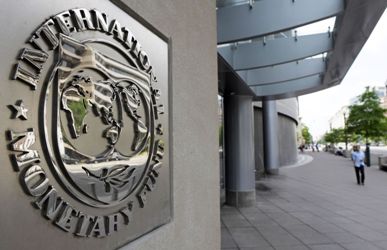Sudanese economy is facing daunting challenges – IMF
May 29, 2012 (WASHINGTON) – Sudan’s fragile economy is facing “daunting” challenges , the International Monetary Fund (IMF) said in its first assessment of the economic health of the east African country, nearly one year after the secession of South Sudan.

“The challenges confronting Sudan are daunting and require appropriate reforms to stabilize the economy. More work is needed to improve prospects for inclusive growth and job creation,” the IMF said in a statement released by an assessment team that was in Khartoum from 13 to 25 May.
The mission chief Edward Gemayel said that the growth slowed down to 2.7 percent, while the inflation reached 19 percent. He added that the fiscal deficit was at 4 percent of Sudan’s gross domestic product grew.
He further pointed out that the economic situation in Sudan did not show any improvement, according to the preliminary information for this year 2012.
Sudan and South Sudan failed to agree on a fee for oil transportation and Juba stopped its production after accusing Khartoum of stealing its oil.
Also after a ten-day occupation of Heglig by the South Sudanese army last April, the oil producing area lost nearly the half of its production, diminishing Sudan’s oil revenue.
Besides that an international conference designed to draw foreign investments and financial support to Sudanese economy after the South Sudan independence was called off earlier this year under the pressure of the US administration.
Washington intended to press Sudan to accept international humanitarian access to the conflict’s zones controlled by the rebel Sudan people’s Liberation %Movement – North (SPLM-N) which fights Sudanese army in Nuba Mountains, South Kordofan.
The IMF mission said it recommends a two-pronged reform strategy.
The first is a short-term emergency measures aiming to stabilize the Sudanese economy. This includes to take a number of fiscal consolidation measures like removal of fuel subsidies that Sudanese MPs reject to endorse.
The international body further underlined the need, in the medium-term, for “a comprehensive structural reform program to recalibrate the economy in line with the country’s economic and financial potential.”
During its two weeks stay in Khartoum , the IFM tam met with finance minister Ali Mahmood Abdel Rasool, oil minister Awad Al-Jaz, minister of mining Kamal Abdelatif, and the deputy governor of Sudan’s central bank Badr Eddin Mahmood Abbas.
They also met with some MPs and representatives of the private sector, civil society organizations, the diplomatic community and development partners.
Sudan and South Sudan started Tuesday a new round of talks for the first time since the fight over Heglig.
The African Union brokered negotiations over security, border demarcation, Abyei and oil take place as the UN Security Council threatened to impose new economic sanctions on the two neighbours if they fail to conclude it within three months.
(ST)
